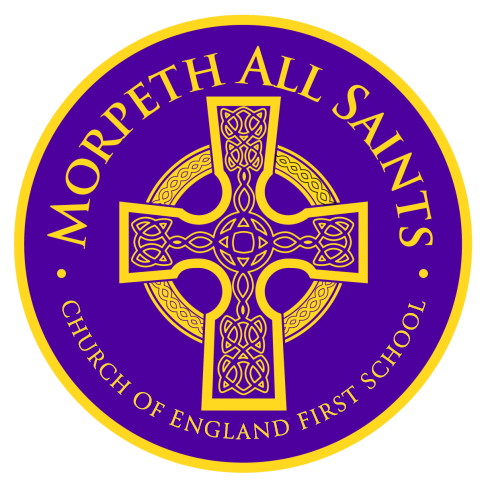Early Years here at Morpeth All Saints…
We plan for the children’s interest and next steps in learning through child initiated play opportunities in the learning environment to promote individualised learning. Purposeful adult led whole class and group activities are also planned to support learning and development of core skills such as writing, reading and mathematics.
Class topics are dictated by the children’s interests at the time.
Seven areas of learning:
Prime areas
Personal, social and emotional development
This area of learning is about emotional well-being, knowing who you are and where you fit in and feeling good about yourself. It is also about developing respect for others, social competence and a positive disposition to learn.
Communication and language
The development and use of communication and language is at the heart of young children’s learning. Learning to listen and speak emerges from non-verbal communication. These skills develop as children express their needs. At first all learning takes place through action and young children learn best when their tasks involve the engagement of many senses.
Physical development
The children develop skills of coordination, control, manipulation and movement. Physical education also helps children gain confidence in what they can do and enables them to feel the benefits of being healthy and active.
Specific areas
Literacy
Reading is a complex process which takes time – it is based on building a wide vocabulary through listening and talking; the more words a child understands, the better they will make sense of what they read. Ultimately, it involves reading with understanding through applying phonic knowledge to words which can be sounded phonetically and learning to read other words through familiarisation. Writing begins with talking, listening and mark-making and develops over time as children acquire an understanding that spoken words can be represented in signs and symbols. Through learning about sounds and how these can be represented in writing, children become aware of phoneme-grapheme correspondences and the skills of forming graphemes to write words and sentences.
Mathematics
In this area of learning children gradually become more confident and competent in counting, sorting, matching, seeking patterns, making connections, recognising relationships and working with numbers, shapes, space and measures. Children’s mathematical development arises out of daily experiences in a rich and interesting environment.
Understanding of the world
Through this area of the curriculum, children are developing the crucial knowledge, skills and understanding that help them make sense of the world. This forms the basis for future work in Science, Design & Technology, History, Geography and Computing.
Expressive Arts and Design
This area of learning includes art, music, dance, role-play and imaginative play. Being creative helps children to make connections between one area of learning and another and so extends their understanding.
Learning Journey
Every child in the Early Years has their learning recorded on Tapestry. This is a holistic way of recording how a young child learns and develops as they move through the Early Years Foundation Stage and includes photos, comments, samples of their child initiated work, as well as adult led activities.
Home-School Links
It is vital at this early stage of a child’s education we develop strong relationships between parents and staff. We would like you to regularly contribute to your child’s learning journey online through your tapestry account.

